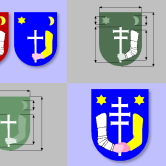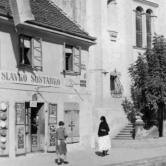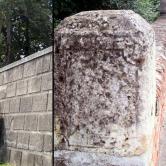History >Recent History
The 19th century saw the introduction of numerous changes in Križevci, as well as in the entire country. The remains of the fortress and the town walls were torn down, the streets were paved, parks and walking paths constructed. The town started assimilating urban characteristics. The economy began to flourish. There were a beer house and a brewery in the town, as well as two printing houses, several hotels, and in 1872 a savings-bank was founded.
In 1870 a railway line connecting Budapest, Zagreb and Rijeka was built near the town. After World War I (in 1918), Croatia broke off all relations with Hungary and Austria, and joined the State of Slovenes, Croats and Serbs (SHS). Shortly thereafter, on December 1st, 1918, it joined the newly founded Kingdom of Serbs, Croats, and Slovenes (SHS).The 19th century could be described as the golden era in the history of Križevci, since this century saw the emergence of a number of individuals whose work had a profound impact on culture, science, and society as a whole. These individuals travelled all over the world, and their work was famous throughout the Monarchy.
In the 12th century Križevci became an important cultural, economic, and military center of the County of Križevci, whose shape, and influence had varied, subject to historical changes. The county was abolished on 28th of June, 1921, when the Constitution of the Kingdom of Serbs, Croats, and Slovenes (SHS) was first adopted. Under the Constitution, the Kingdom was divided into 33 districts, 6 of which constituted Croatia, and Križevci became part of the 3rd (Zagreb) district. At that point, the influence Križevci had as a regional center started to diminish, as well as its impact on culture and economy. Following World War II, Croatia became part of the Socialist Federative Republic of Yugoslavia (SFRY), and Križevci was made the district and municipal center, and shortly thereafter only the municipal center.
On April 13th, 1993, after Croatia declared its independence from the former Yugoslavia, and proclaimed its own state, the Republic of Croatia, Križevci became part of the Koprivnica-Križevci county, with Koprivnica as its center. Thereby, the influence Križevci had for centuries as a cultural and administrative center of northwestern Croatia diminished considerably.




